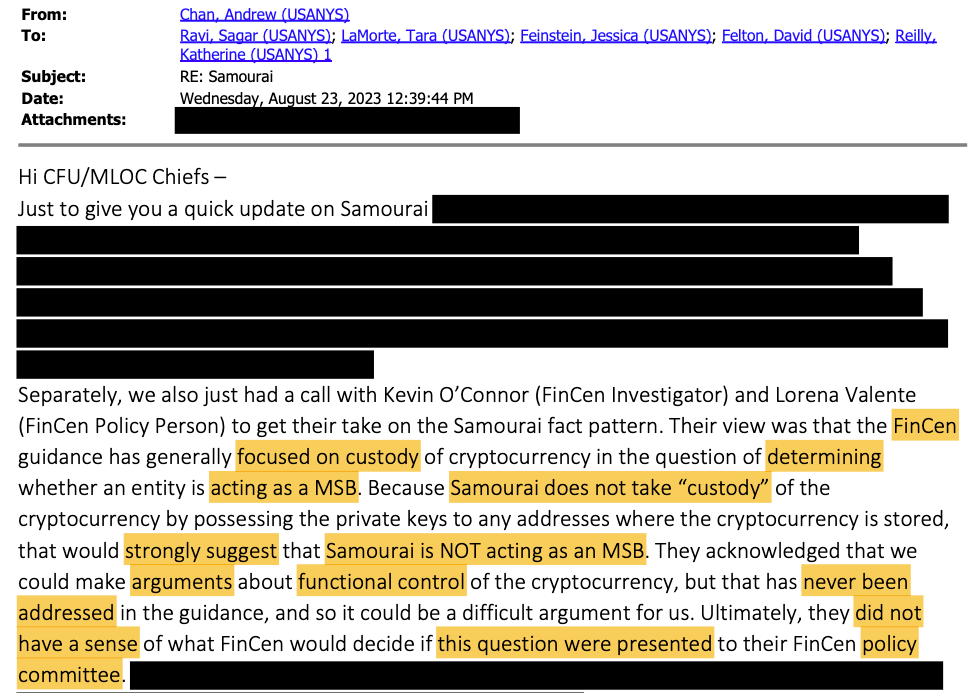
Samourai Wallet Claims Prosecutors Hid FinCEN Advice, Sparking Dismissal Bid
In a dramatic turn of events, Samourai Wallet, a privacy-focused cryptocurrency mixing service, is alleging that federal prosecutors concealed key advice from the Financial Crimes Enforcement Network (FinCEN) regarding the company’s licensing status. This revelation has triggered a potential dismissal of the charges against Samourai’s executives, highlighting the complex legal landscape surrounding cryptocurrency mixers and their regulation.
In a letter to the Manhattan federal court on May 5, Samourai’s legal team claimed that prosecutors, six months prior to charging co-founders Keonne Rodriguez and William Hill, were informed by FinCEN representatives that Samourai Wallet, under FinCEN‘s guidance, would not qualify as a ‘Money Services Business‘ requiring a license.
Despite this, the prosecutors went ahead and charged Rodriguez and Hill with operating an unlicensed money transmitting business and money laundering conspiracy in February 2024, arresting them the following April.
The letter alleges that prosecutors were obligated to disclose their discussions with FinCEN regarding Samourai within two weeks of unsealing charges, but they instead kept this critical information hidden for over a year, only revealing it on April 1, 2025.
The basis for the FinCEN advice, as summarized in emails from prosecutors, centered around Samourai’s method of handling cryptocurrency. FinCEN representatives stated that because Samourai does not hold ‘custody’ of cryptocurrency by possessing private keys to any addresses where the cryptocurrency is stored, it would strongly suggest that they were not acting as an MSB.

Renewing the Dismissal Bid
Armed with this new information, Samourai’s lawyers are planning to refile their motion to dismiss the charges against their clients. They argue that the lack of proper notice regarding FinCEN‘s stance and their understanding that they were operating lawfully provide strong grounds for dismissal.
This move comes on the heels of the Justice Department’s recent shift in crypto enforcement policy, which prompted Rodriguez and Hill to initially seek a dismissal of the case in early April.
Deputy Attorney General Todd Blanche issued a memo in April stating that the Justice Department wouldn’t prosecute crypto mixers for unwitting regulatory violations. This shift in policy was seen as a potential lifeline for Samourai, but the prosecutors’ apparent concealment of the FinCEN advice further strengthens their case for dismissal.
The Samourai case highlights the growing tensions surrounding the regulatory landscape for crypto mixers, which are often used to enhance privacy but can also be exploited for illicit purposes. The debate centers around striking a balance between protecting user privacy and preventing criminal activity.
The outcome of this case will likely have significant implications for the future of crypto mixer regulation and the wider cryptocurrency industry. The Justice Department’s response to Samourai’s new motion, along with FinCEN‘s stance on crypto mixer licensing, will be closely watched by stakeholders across the ecosystem.


